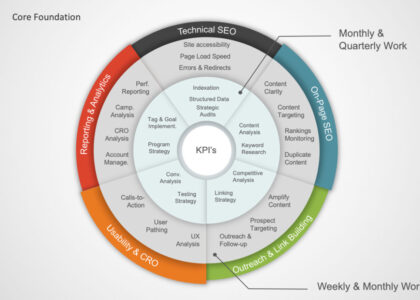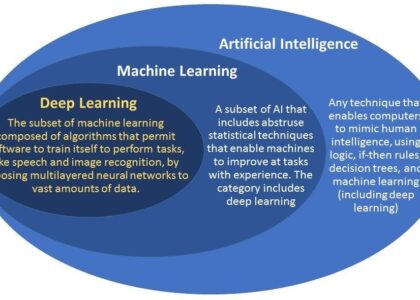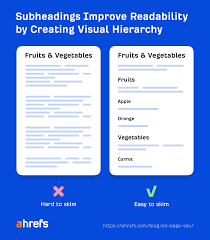The Power of Analytics Services: Unleashing Insights for Business Success
Analytics services have become a crucial tool for businesses seeking to gain valuable insights from their data. In today’s competitive landscape, the ability to harness the power of data analytics can make all the difference in driving strategic decisions and achieving business success.
Understanding Analytics Services
Analytics services encompass a wide range of tools and techniques designed to gather, process, analyse, and visualise data. By leveraging advanced algorithms and technologies, businesses can uncover patterns, trends, and correlations within their data sets that may not be immediately apparent through traditional methods.
The Benefits of Analytics Services
One of the key benefits of analytics services is the ability to make informed decisions based on data-driven insights. By examining historical data and forecasting future trends, businesses can identify opportunities for growth, optimise operational efficiency, and mitigate risks effectively.
Furthermore, analytics services enable businesses to personalise customer experiences by understanding their preferences and behaviour. This targeted approach can lead to increased customer satisfaction, loyalty, and ultimately, higher revenues.
Types of Analytics Services
There are several types of analytics services that cater to different business needs:
- Descriptive Analytics: Provides a summary of historical data to understand what has happened in the past.
- Predictive Analytics: Uses statistical algorithms and machine learning techniques to forecast future outcomes based on historical data.
- Prescriptive Analytics: Recommends actions to take based on predictive analysis to achieve desired outcomes.
- Diagnostic Analytics: Focuses on identifying the root causes of events or issues by analysing data patterns.
The Future of Analytics Services
As technology continues to evolve rapidly, the future of analytics services looks promising. With advancements in artificial intelligence (AI) and machine learning capabilities, businesses can expect more sophisticated analytics tools that deliver deeper insights at a faster pace.
In addition, the integration of Internet of Things (IoT) devices will further expand the scope of analytics services by providing real-time data streams for analysis. This real-time insight will empower businesses to make agile decisions in response to changing market conditions.
In Conclusion
Analytics services play a vital role in helping businesses unlock the full potential of their data. By embracing these services and leveraging actionable insights, organisations can gain a competitive edge, drive innovation, and pave the way for sustained growth in today’s dynamic business environment.
Understanding Analytics Services: Key Questions and Insights for Businesses
- What are analytics services?
- How can analytics services benefit my business?
- What types of analytics services are available?
- What is the difference between descriptive and predictive analytics?
- How can I leverage prescriptive analytics for decision-making?
- What role does data visualisation play in analytics services?
- Are there industry-specific analytics services tailored to different sectors?
- How can businesses ensure data security and privacy when using analytics services?
What are analytics services?
Analytics services encompass a diverse set of tools and methodologies designed to extract meaningful insights from data. In essence, analytics services enable businesses to make sense of their information by analysing patterns, trends, and correlations that can inform strategic decision-making. By utilising advanced algorithms and technologies, analytics services offer a comprehensive approach to data analysis, ranging from descriptive analytics that summarise historical data to predictive analytics that forecast future outcomes. Ultimately, analytics services empower organisations to leverage the power of data-driven insights for optimising operations, enhancing customer experiences, and driving business growth.
How can analytics services benefit my business?
Analytics services can benefit your business in numerous ways. By utilising analytics services, you can gain valuable insights from your data that can drive strategic decision-making and improve operational efficiency. These services enable you to identify trends, patterns, and correlations within your data sets, helping you make informed decisions to optimise processes, enhance customer experiences, and ultimately increase profitability. Analytics services also empower you to forecast future trends, mitigate risks, and personalise your marketing strategies based on data-driven insights. Overall, integrating analytics services into your business operations can lead to better performance, competitive advantage, and long-term success in today’s data-driven business landscape.
What types of analytics services are available?
When it comes to analytics services, a common question that arises is: “What types of analytics services are available?” Businesses have a variety of options to choose from, depending on their specific needs and objectives. Some of the key types of analytics services include descriptive analytics, which summarises historical data; predictive analytics, which forecasts future outcomes using statistical algorithms; prescriptive analytics, which recommends actions based on predictive analysis; and diagnostic analytics, which focuses on identifying root causes through data analysis. Each type offers unique insights and benefits to help businesses make informed decisions and drive success in today’s data-driven landscape.
What is the difference between descriptive and predictive analytics?
Descriptive analytics focuses on summarising historical data to provide insights into what has happened in the past, helping businesses understand trends and patterns. On the other hand, predictive analytics uses statistical algorithms and machine learning techniques to forecast future outcomes based on historical data. While descriptive analytics explains the “what” and “why” of past events, predictive analytics focuses on predicting “what will happen” in the future, enabling businesses to make proactive decisions and anticipate trends before they occur. Both types of analytics are valuable tools for businesses seeking to leverage data-driven insights for strategic decision-making and operational improvements.
How can I leverage prescriptive analytics for decision-making?
Prescriptive analytics offers a powerful solution for decision-making by not only predicting future outcomes based on historical data but also recommending specific actions to achieve desired results. By leveraging prescriptive analytics, businesses can move beyond simply understanding what is likely to happen and instead focus on determining the best course of action to take. This proactive approach enables organisations to make informed decisions that are optimised for success, leading to improved efficiency, strategic planning, and ultimately, better business outcomes.
What role does data visualisation play in analytics services?
Data visualisation plays a crucial role in analytics services by transforming complex data sets into easily understandable visual representations. Visualisations such as charts, graphs, and dashboards enable users to identify patterns, trends, and outliers at a glance, facilitating quick decision-making and actionable insights. By presenting data visually, analytics services enhance communication, promote data-driven storytelling, and empower users to explore data interactively for deeper understanding. Ultimately, data visualisation serves as a powerful tool in enhancing the effectiveness and impact of analytics services by making data more accessible and meaningful to stakeholders across an organisation.
Are there industry-specific analytics services tailored to different sectors?
Yes, there are industry-specific analytics services that are tailored to different sectors. Various industries, such as healthcare, finance, retail, and manufacturing, have unique data requirements and challenges that demand specialised analytics solutions. These sector-specific analytics services are designed to address the specific needs of each industry, providing insights and recommendations that are relevant and actionable within their respective contexts. By leveraging industry-specific analytics services, businesses can gain a competitive advantage, improve decision-making processes, and drive innovation tailored to the nuances of their sector.
How can businesses ensure data security and privacy when using analytics services?
Ensuring data security and privacy when using analytics services is a top priority for businesses in today’s digital age. To safeguard sensitive information, businesses can implement robust security measures such as encryption, access controls, and regular data audits. It is essential to partner with reputable analytics service providers who adhere to industry best practices and compliance standards, such as GDPR or HIPAA, depending on the region and nature of the data being processed. Additionally, conducting thorough risk assessments and providing employee training on data handling protocols can help mitigate potential security breaches and ensure that data privacy regulations are upheld throughout the analytics process. By prioritising data security and privacy measures, businesses can confidently leverage analytics services to drive informed decision-making while safeguarding their valuable assets.





